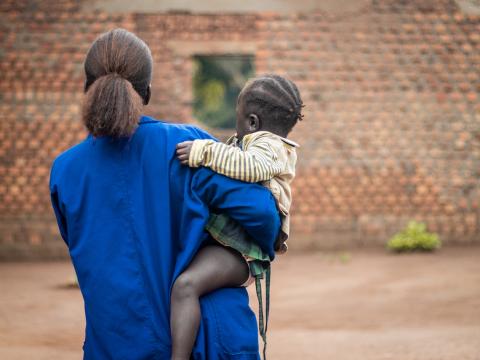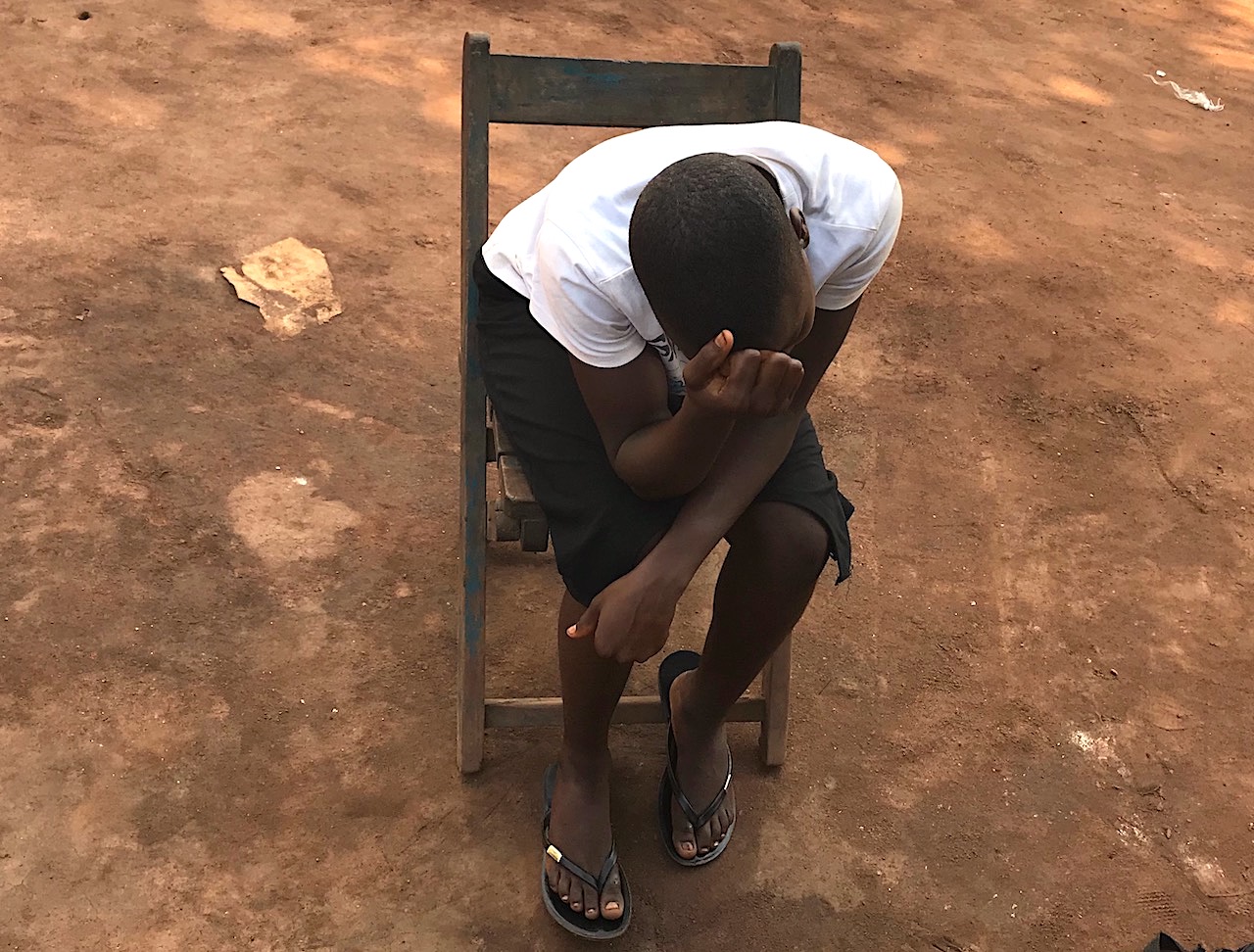Stop violence against children: A child lost to armed groups is one too many

By Dr. Mesfin Loha, Country Programme Director, World Vision South Sudan
The plight of children associated with armed forces and groups is beyond description. Hence, I will not attempt to share the horror that many of these children have shared with me.
My first interaction with some of the former child soldiers was back in February 2018. I was just a few months into my new role as the Country Director for World Vision in South Sudan.
Many of them were young, some as young as 11 years old. They were scared, perplexed, and emaciated for staying too long in the bush.
It was heartbreaking to see young girls barely able to carry their babies. Their faces showed desperation. Most were weak and looked anemic. Those who were pregnant have blank stares, a sad picture of uncertainty.
Read Rose's story: Abducted and raped, former child soldier fights for her future: "I am not ashamed"
With support from UNICEF and other partners, World Vision launched the Comprehensive Case Management and Community-Based Psychosocial Support, a program aimed at providing assistance to children who were released from armed forces and groups.
Today, we have assisted in the healing and integration of 988 children. But countless more languished in captivity, and thousands more could be in danger of abduction.

The interim care center was a crucial starting point for unaccompanied and separated children or in need of interim care, those with specialized mental health concerns, and point of contact for a referral.
The Interim Care Centre that World Vision manages along with government partners, is recognized as the best practice using community-based solutions. It is a stepping stone to the assessment work, specialist care, and family reunification.
A successful reintegration, however, requires longer-term, predictable funding to address the ongoing multi-faceted needs of these children. It must go beyond a "projectized" approach with one-year funding cycles.
Both boys and girls are recruited, often for different roles within the armed forces, hence adequate emphasis and gender appropriate interventions must be strengthened.
The need for sustained advocacy for such programming and demanding increasing role of the government in the prevention of recruitment of children must be intensified.
Read Mary's story: From horror to hope, former child soldier sews her way to healing and recovery
The Government of South Sudan has passed legislation criminalizing recruitment and use of children under 18 by armed forces. It is high time that collective voices be louder to see this being enacted.
The current state of the country begs for a multi-pronged approach that includes scaling up of context-appropriate interventions to support those released and on the path to normalcy.
Add to this the sustained efforts to ensure the multitudes that are still under captivity are released as a matter of urgency.
It is high time to intensify collective efforts to get the estimated 19,000 children associated with armed forces and groups released with a hope for a life in all its fullness.
World Vision continues to provide community-based psychosocial support to the 988 children and other vulnerable children in the community, thanks to UNICEF and other partners.
This must continue until such time that the children are fully integrated and have access to appropriate care and support from the family, community, and institutions.
Download Programme Brief: Children Associated with Armed Forces and Groups
Download Report: It takes a world to end use of child soldiers
Watch Video: Former child soldier Margret chooses hope